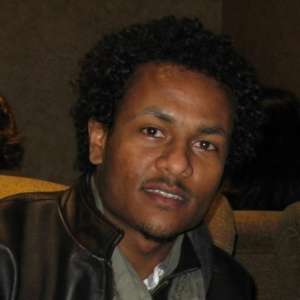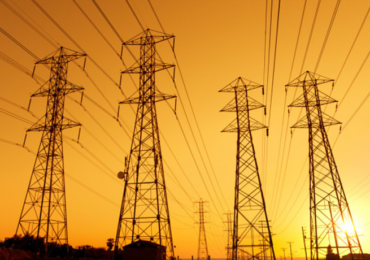This blog is one of three articles by Tamrat A. Gelu under the umbrella theme of Cooperation over the Blue Nile is the Way forward for Egypt. Part I focuses on the significant wars that took place and the treaties reached between Ethiopia, Egypt and the Nile Basin countries. Part II introduces the emergence of the Grand Ethiopian Renaissance Dam (GERD) and discusses the role of the African Union (AU) in the tripartite negotiations. Part III highlights the economic imperative for the GERD and the need for African problems to be solved by Africans.
The recent economic advancements in the Nile Basin and in the Horn of Africa region requires integrated interstate infrastructure development such as roads, railways, ports, telecommunications, and most importantly, electricity. The 2018 World Bank report [19] shows that close to 72 percent of South Sudanese, 75 percent of Somalis, 40 percent of Sudanese, 45 percent of Ethiopians, 25 percent of Kenyans, 40 percent of Djiboutians, 85 percent of Somaliland, 50 percent of Eritreans, 58 percent of Ugandans, and 65 percent of Tanzanians still cut trees for firewood and use animal dung to provide themselves with heat for cooking and light. For the millions of poor people in these countries lack of electricity affects their health, education, and livelihood while exposing the environment for more degradation.
Egypt and Sudan need to see this bigger picture instead of being absorbed by a single project such as the Grand Ethiopian Renaissance Dam (GERD).Millions of African youth are forced to leave the continent due to poverty, lack of better opportunity, and hope. Each year, in pursuit of a better future abroad, thousands of them lose their lives while trying to cross the Red Sea, the Mediterranean Sea, and the deserts of Egypt and Yemen. Africa can reduce and stop the migration and death of its people only if its countries cooperate and work together.
In 2018, the International Energy Agency reported [20] close to 600 million people in sub-Saharan Africa do not have access to electricity. That is why several countries are taking action to provide basic access to electricity. These actions include the generation as well as the transmission of electric power supported by the North, South, East, and West African regional power pools.
The objective of these power pools is to optimize the development of energy sources and to ease the access to electricity to all people in these regions through regional power interconnections. Once completed, the GERD will become a new addition to the East Africa Power Pool (EAPP) which includes Egypt, Ethiopia, Kenya, Rwanda, Sudan, Tanzania, Libya, and Uganda.
African Solutions to African Problems
As downstream countries, Egypt and Sudan need to approach upstream riparian countries, including Ethiopia, in an honest, friendly, and constructive manner for a better future for all. While Egypt can be obsessed over the Nile, Ethiopia’s right to use the tributary river (‘Abay’) for hydroelectric power generation should be respected and need not be compromised. Claiming sole and natural rights to the Nile River, in this day and age is unacceptable.
The lack of trust between Egypt and Ethiopia has been the main source of tension for years. It is damaging the relationship between the two oldest civilizations in Africa and is making them vulnerable to superpowers that manipulate them to compromise on their Pan-African solidarity and values.
It was not necessary for Egypt to take the GERD case to the United States and the United Nations Security Council (UNSC) when the continental institution (now the African Union (AU) that it helped founded in 1963 deserves to mediate the case firsthand.
As the largest Arabic speaking population in the world [21], Egypt’s foreign relations are heavily invested in the Middle East in addition to Europe and the U.S. Egypt’s relation with Africans, especially the Nile basin countries, have been fragile and frequently hostile.
Cairo need not forget its history and its continent, including the Nile Basin and the Red Sea regions. Given its geopolitical and agro-economical advantage backed by ancient history, vast natural resources, and cheap labor, the region could rewrite its great history again if we all support each other and grow together.
Failing to fix our problem and the dependency on the superpowers is costing our fathers’ Pan-African solidarity and it is increasingly difficult for Africa to make its own decisions. It is not too late to claim back our countries before we all get completely over reliant on debt, but we have to act fast.
Egypt and Sudan want Ethiopia to sign an agreement on the filling and operation of the dam, and future projects on the Ethiopian ‘Abay’ River. On the other hand, Ethiopia wants to sign a guidelines agreement on the filling and operation of the dam but does not want to sign a binding agreement that would in any way constraint its future development activity and natural resource use inside its territory.
Agreeing to a Cooperative Framework
Making a bi- or tri-lateral agreement on the use and management of the Nile River and its tributaries has been a source of conflict as evidenced by the 1959 agreement between Egypt and Sudan. This is why the majority of the riparian countries came together to form the Cooperative Framework Agreement (CFA) to address the use and management of the Nile waters.
The CFA is intended to address differences and bring the riparian countries to a common ground of fair and equitable share of the Nile waters. Unfortunately, Egypt and Sudan have strongly opposed this common ground allegedly because it reduces their 1959 water allocation.
It’s important to note that cooperation is the only way forward for the Nile Basin countries. Egypt must open its door to cooperate with the upstream countries, and needs to see the advantages of signing the CFA instead of victimizing itself. Signing the CFA helps Egypt to bridge its fragile relationship with the basin countries and that could pave a way for further cooperation in socio-economic as well as geo-political frontiers. There are, after all, plenty of fertile farmlands and abundant sources of water in the basin.
However Egypt’s hostile strategies such as considering war as a means to control the Nile waters will only contribute to regional instability leading to more poverty and migration. Egyptians can sleep in peace only if they agree to sleep in peace with their neighbors, but not because the superpowers can force Ethiopia to sign an unfair deal.
Resolving the issue of GERD requires political will—and the ball is in Cairo’s court.
References

Tamrat A. Gelu (M.Sc.)
Tamrat A. Gelu (M.Sc.) is a mechanical engineer and ex-university lecturer. He is interested in entrepreneurship and geo-politics of the Horn of Africa. He can be reached at tamrat.abishu[at]gmail.com



